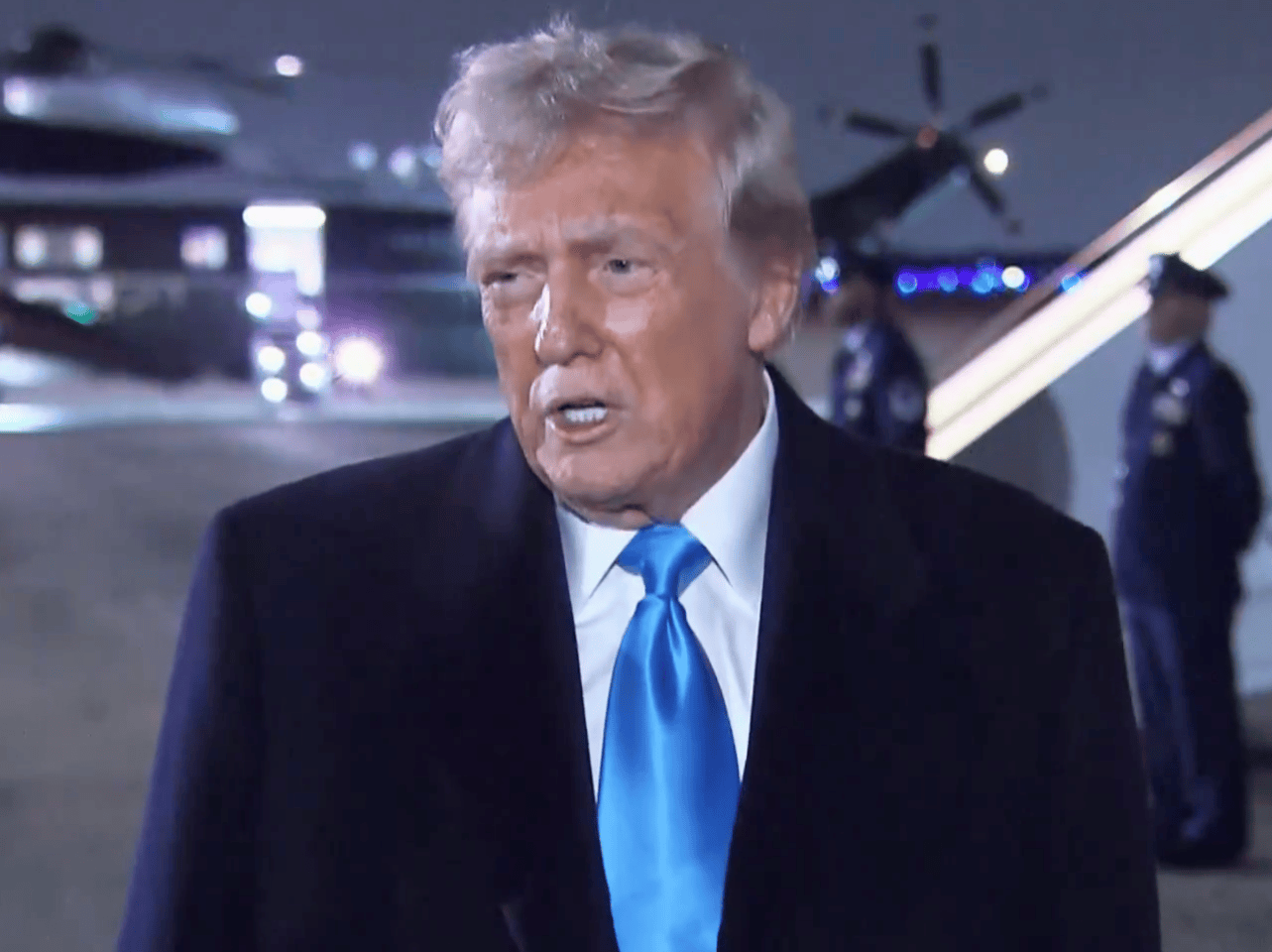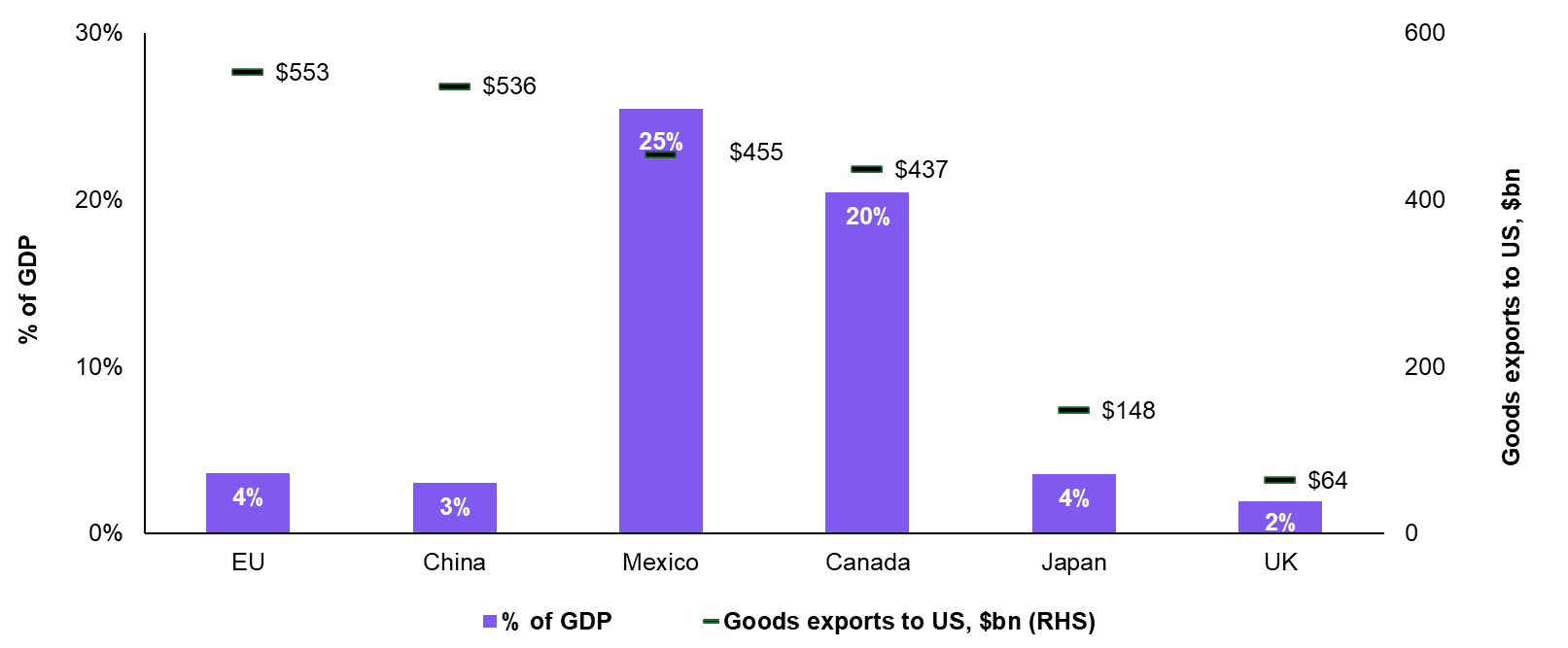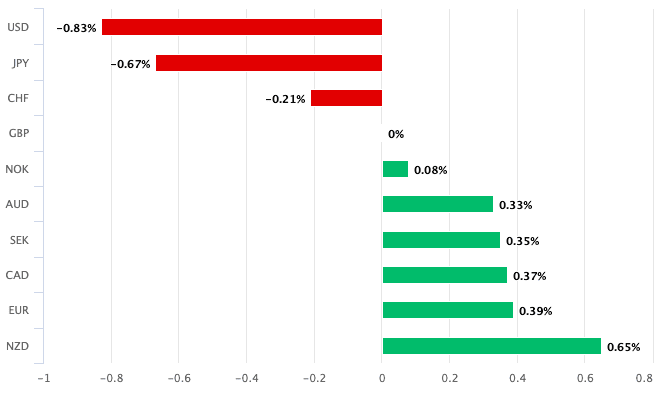
Above: President Trump comments on tariffs and UK-U.S. trade late Sunday.
Trump's comments on UK tariffs suggest the country will be spared the worst of U.S. tariffs.
The British Pound is trading like a safe haven on the day markets respond to President Donald Trump's tariff rollout.
The Dollar is tearing higher, but the UK currency is outperforming the majority of G10 names, shadowing the safe-haven Yen and Swiss Franc.
Outperformance speaks of relative confidence that the UK isn't as economically exposed to tariffs as the major exporters, such as the EU.
Speaking late on Sunday, Trump said trade with the UK is "out of line" but "can be worked out".
"So, the UK is way out of line, and we’ll see, the UK, but European Union is really out of line," Trump told reporters. "UK is out of line, but I’m sure that one, I think that one can be worked out. But the European Union is, it’s an atrocity."
The UK is one of the only countries in the world to have a trade deficit with the U.S. in goods, i.e. the UK imports more U.S. goods than the U.S. imports from the UK.
ONS figures for 2023 show that the UK imported £57.9BN of goods from the United States and exported £60.4BN of goods.
The UK does operate a trade surplus in services with the U.S., importing £57.4BN of services and exporting £126.3BN. However, services tend to fall outside the scope of tariffs, and it would be unusual for Trump to target deficits in services (certainly, he hasn't mentioned a services tariff to date).
Simon French, lead economist at Panmure Liberum, says the UK has relatively little direct exposure to any tariffs on its goods exports to the U.S, but "the transmission is more likely to be a slowing of global economic growth, which the UK is geared into, and tighter financial conditions than the domestic economy needs," says French.

Image courtesy of Simon French @ Panmure Liberum.
Based on the trade in goods alone, Trump has little to complain about in terms of trade imbalances when it comes to the UK. The U.S. president also said he was "getting along very well" with UK Prime Minister Keir Starmer, whom he described as "very nice".
Lloyds Bank CEO Charlie Nunn recently said he believed it could allow the UK "to really stand out."
That’s because of the structure of its economy, the comparative services space and the lack of supply chains heavily bound up in the U.S., he said.
In an FX world where tariffs are in focus, Pound Sterling is a relatively safe haven; having come under pressure in early January, pound exchange rates can recover during February.

Above: GBP outperforms G10 peers on Monday 03 Feb, only lags the evergreen safe-havens.
Robert Wood, Chief UK Economist at Pantheon Macroeconomics, the UK would feel minimal direct effects from U.S. tariffs, as only 15% of British goods exports go to the U.S.
On this basis, he estimates a 25% tariff on UK goods exports to the U.S. would cut British exports by only 0.2% of GDP, assuming price-elasticity of demand of -0.4.
"Value-added would be hit less because UK exports have a high import content. The UK gets off lightly compared to other regions, like the EU," says Wood.
The Pound extended Monday's gains against the Euro and recovered against the Dollar after it was announced Mexico and the U.S. agreed to take steps that would suspend the implementation of tariffs on Mexican imports on Tuesday.
The agreement confirms the scope for worst-case scenarios to be avoided in upcoming frays, tempering U.S. Dollar demand.
The Pound's outperformance is interesting as it looks as though it has benefited against most G10 peers as a relatively safe haven when tariff pressures are high, and it benefits amidst market relief when temperatures fall.
"We remain constructive versus the bulk of G10 FX on our view that GBP is in the process of a secular recovery," says Kamal Sharma, FX strategist at Bank of America. "Downside risks have increased since the start of the year, but we think that much of the bad news is now priced in and there has been a subsequent cleansing of long positioning."
